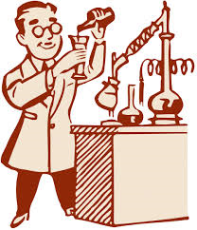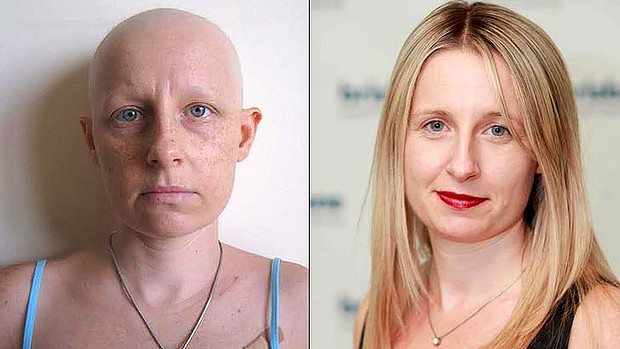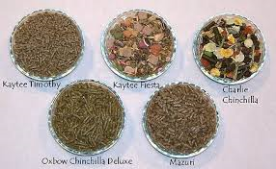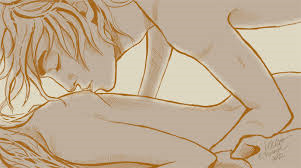I thought that this went well with my last post, enjoy (:
People Need People
Today’s day one in my happiness project, which means I’ve been doing some research on relationships this morning. I knew this one was going to be a little more challenging for me because I am a strong advocate for independence and our need for relationships can, at times, challenge that belief. It doesn’t have to though I’m starting to realize, in fact, maybe they go hand in hand? We can’t deny that historically, people do better in tribes and communities. We can take that even farther to say that we have evolved to keep healthy relationships over time, which is why they are so important today. Some people might challenge that and say no, in fact they don’t need anyone else to be happy. The fact of the matter is, when we lie down on our death bed we aren’t going to think about how much money we made or how many ribbons we won, we are going to think of how many lives we touched and who touched our very own. It’s only through relationships that we can make a lasting impact on other people’s lives and experience love, one of the most important and basic needs for humans. There have been hundreds of studies on the correlation between peoples relationships and their mental and physical health. In the end of these studies they found that people with strong positive relationships or pets in their lives had significantly stronger immune systems, less depression, as well as healthier and longer life spans then those without. In the end, even I have to concur that people need people.
I’ll be focusing on spending some time with my family and appreciating my friendships today while I’m doing some spring cleaning and homework and possibly talk about it later, I’d love to hear about your own experiences and thoughts on this. Thanks for reading! – Stray.
What is Happiness?
Thought this was a good way to start off my project. I realize that the ending is a little corny, but it’s interesting enough to give up three minutes of your time.
Is There A Science To Happiness?
I’ve been really interested in what makes people happy lately, in terms of making myself happy, bringing others happiness, and the science of what really makes people smile. Sure, we’re all incredibly diverse in our lifestyles and preferences, but I believe our happiness comes down to the same formula for all of us. I’m not the first one to stumble across this thought, upon visiting thepursuitofhappiness.org I found an article on “The Science Of Happiness.” The list is broken down into seven habits that make a person happy, the formula for internal contentment that I was searching for earlier includes:
1. Relationships – People who have one or more close friendships are happier. It doesn’t seem to matter if we have a large network of close relationships or not. What seems to make a difference is if and how often we cooperate in activities and share our personal feelings with a friend or relative
2. Caring – People who volunteer or simply care for others on a consistent basis seem to be happier and less depressed. Although “caring” can involve volunteering as part of an organized group or club, it can be as simple as reaching out to a colleague or classmate who looks lonely or is struggling with an issue
3. Exercise – Regular exercise has been associated with improved mental well-being and a lower incidence of depression.
4.Find your flow – If we are deeply involved in trying to reach a goal, or an activity that is challenging but well suited to our skills, we experience a joyful state called “flow.”
5. Spirituality or Religion – Finding meaning.
6. Strengths & Virtues – Studies by experts such as Martin Seligman in the new field of Positive Psychology show that the happiest people are those that have discovered their unique strengths (such as persistence and critical thinking) and virtues (such as humanity) and use those strengths and virtues for a purpose that is greater than their own personal goals.
7. Positive Mindset & Gratitude – Of all the areas studied in the relatively young field of positive psychology, gratitude has perhaps received the most attention. According to studies conducted by Martin Seligman grateful people have been shown to have greater positive emotion, a greater sense of belonging, and lower incidence of depression and stress.
The list they’ve provided makes enough sense, all the happy people I can think of definitely have lives that align with these values and goals. What really confuses me is how many unhappy people there are in America alone, let alone across the world, if it boils down to a simple seven step list like this? Before I can find an answer to explain our global unhappiness I need to start with myself, why am I unhappy and what can I do to change it? So starting tomorrow I’m going to spend a day or two focusing on one of the steps on the seven step list, and see just how accurate it really is.
Homeless High School Student Graduates
I decided to start taking part in motivational Mondays, enjoy (:
Wait, Which Me?
I’ve always been the type to bite my tongue or look for resolve in conflicts, almost always anyway, we all have our moments. It’s always been imperative for me to do so, and for a long time I’ve convinced myself that I’d rather be on the sidelines then caught up in a bunch of drama and conflict. But I’ve realized lately that maybe I don’t want to be on the sidelines, maybe I don’t want to bite my tongue. Lately all the moments I would always keep quiet or leave the scene I can feel my blood turn hot and I’m seething, the last thing I want to do is be quiet anymore. Sure, maybe that’s not a bad thing. I know it’s good to stand for something and to fight for the things you believe in, as well as the people you love. But it scares me that I don’t want to be the quiet, patient me, because that’s who I am. I’m suppose to be even tempered, logical, tough, quiet, and dependable. The me that’s been unfurling under my skin lately never learned how to handle their temper without completely burying it, this other person doesn’t have a “place” in the life I’ve been planning. The me I’m used to is going to get a logical job I’m likely to succeed at and involves helping people, and will bring in a decent flow of cash. The me I’m suppose to be is never going to be involved in drama or disputes other then by association because she’s all about keeping the peace. I have no idea where this other person is going to go in life, I don’t know what I’ll be involved in tomorrow or a year from now, I think that’s what scares me so much. Because both versions of myself want to know what’s going to happen next, but I need to realize that neither of them are going to know till it happens.
There’s No Bravery In No Makeup Selfies
Below I copied and pasted what Kim has to say about the No Makeup Selfie’s campaign.
If someone had shown me their no make-up selfie when I was is the midst of chemotherapy hell three years ago, I would have mustered what little strength I had to beat them with my drip stand.
Violently.
The trend currently sweeping social media, masquerading as a cancer awareness campaign, encourages women to strip their faces bare, snap a selfie and post it for all to see.
Let’s leave aside for a moment that I fail to see how this self-indulgent crap actually serves to heighten cancer awareness.
I mean, is there anyone out there unaware of cancer?
More disturbingly, I fear this destructive campaign is only serving to deliver a giant slap in the (make-up free) face to every woman undergoing life-saving chemotherapy right now.
It’s a slap she does not need when cancer is already serving up a regular supply.
By putting down their lip gloss, snapping a picture of their healthy faces and blithely professing their bravery for posting it publicly, women everywhere are indirectly saying “this is me at my least attractive”.
The problem is, to a woman at the height of a chemotherapy regime who barely recognises the reflection that greets her in the mirror, these images are not unattractive at all
She already acutely feels that by being bald, pale and gaunt, there is nothing that deems her attractive by societal standards now.
A stream of make-up free selfies can do nothing more than intensify that awareness and perhaps make that horrendous time that little bit harder than it needs to be.
For me, a little more than three years ago, staring at my reflection became so traumatic, I simply stopped looking.
My body was playing host to a vicious battle between nature and medicine, as a rare and incredibly aggressive form of lymphoma inexplicably set about killing me. Fast.
I spent three months in isolation in a Melbourne oncology ward as doctors chemically annihilated a cancerous, football-sized stomach tumour that, within just four weeks of symptoms appearing, had rendered me unable to eat or breathe unassisted.
The head of the haematology department told me there was only one plan of attack available to him. No plan B. No back-up plan.
“Sometimes the treatment just stops working,” he said.
“We don’t know why yet and, if it happens, there’s nothing more we can do.”
His words lingered ominously throughout my treatment, constantly threatening me with death despite the ongoing success of the chemotherapy regime.
It may seem frivolous that in such grave circumstances, appearance should remain such a crippling psychological factor.
But my 20-something face, until so recently the picture of health, quickly and brutally succumbed to the full force of the chemical warfare.
I stopped looking mainly because my reflection returned the undeniable reality that I was critically, dangerously sick. That I could very well die.
But I also stopped looking because, by conventional standards, I was ugly. There was no escaping it.
The person with the transparent skin, with the sunken eyes no longer framed by eyelashes or eyebrows was not the healthy version of myself I still pictured in my head.
On bad days, it made me fall to the floor and cry.
Yet, I felt extraordinarily guilty for doing so because unlike many others, at the end of it all, I was probably still going to be alive.
So forgive me, make-up free selfie posters, if I don’t celebrate your supposed bravery.
Washing off your foundation, losing the mascara and posting a photo of a face that remains healthy and attractive is not brave.
It is self-indulgent and offensive in the extreme to those you are professing to support.
I’m sure many people have been genuinely motivated by wanting to do their bit to help and if the campaign has yielded an enormous surge in donations to cancer research, it certainly has some merit.
However, if it has come at the cost of making the most hellish time in the lives of women enduring chemotherapy harder than it already is, it has no virtue whatsoever.
To help cancer research in Queensland, please donate to the QIMR Berghofer Medical Research Institute or Cancer Council Queensland.
Feeding Your Chinchilla
As a chinchilla owner, I’ve come to realize feeding your chinchilla is way more complicated then it seems like in the beginning. When I first purchased my chinchilla I thought that all I had to do was go to Petco and find the bag labeled chinchilla food and my little guy would be taken care of. Of course, you can still do this, but I find your wallet and your chinchillas health will be much more great full if you do some more research on the subject. After a lot of digging around I’ve found the best food for both my chins and my wallet, and I’m hoping I can save someone hours of research by writing this.
Avoid Mixed Foods: These are foods like Charlie chinchilla or kaytee fiesta (listed above). While mixed foods claim to meet all of the chinchillas dietary requirements, this is only true if they eat every last morsel and if all the mixed pieces are dispersed equally, which is impossible when they’re all in the same bag. Almost every chinchilla will only pick out what they like (the junk food 99% of the time) and leave the rest, or throw it out of the bowl. Mixed foods like these are known to cause a shorter life span, diabetes, and even bladder infections. I do occasionally buy mixed foods like Charlie chinchilla and feed it to my chins as an occasional treat, but not as their main source of food.
Timothy vs. Alfalfa: This seems to be a big debate between chinchilla breeders and owners, and through research and experience this is what I’ve concluded. Alfalfa Hay should not be given to chinchillas over 6 months, it can cause obesity, bladder infections, and all kinds of problems. BUT, alfalfa based pellets are fine because they don’t consume as many pellets as hay. It is said that the ideal diet is timothy hay with alfalfa pellets. Timothy pellets or hay are completely safe and are not known to cause any health complications and I personally stick with these to be safe.
Details To Look At: A healthy chinchilla diet should contain 16-20% protein, 18-20% fiber, and about 2-5% fat. This is the most important factor to look at when deciding on a food! It does not matter if the fat percentage is lower, but fiber and protein must be between those percentages or you’re setting your chinchilla up for health complications or a shorter life span.
Feeding Rabbit Food?: A lot of people throw up their arms at this question, fully prepared to tell you how delicate a chinchilla’s digestive system is and that it should not be jeopardized with other species foods. They are completely right to be weary of feeding a chinchilla rabbit food. BUT, a select few are completely safe and actually more healthy and cost effective to feed then most commercial chinchilla foods. As long as they meet the percentages listed above, they are probably safe to use.
Here are some of the foods I’ve found to be safe and cost effective:
1.Tradition® Chinchilla Pellets
2. PANR
3. Purina Rabbit Chow Complete Advantage
4. Oxbow Essentials Chinchillas Delux
5. Purina Mazuri
A Needy Generation
I sometimes wonder if I’m the only one who thinks that this generation has an insanely needy attitude towards not only each other, but things. I see it in facebook posts, in newly published novels, in conversations at school, on tv, everyone “needs” their boyfriend or girlfriend, they “need” to be with them every time something bad happens or it’s been a whole 24 hours, they “need” a best friend they can tell everything to and always depend on, everyone needs this and that in our generation. While I might be coming off as judgmental and annoyed, I’m not. I’m genuinely concerned about how far this attitude of dependency is going to go and I completely admit to being at fault for this in my lifetime.
Don’t get me wrong, I agree that people need other people and I don’t think that we are meant to do everything by ourselves by any means. Some of the happiest people I know are married, I’ve seen even teenagers grow and become better within their relationships with both friends and significant others. What really bothers me though, is this attitude that without another person or thing, we are incomplete. Without another specific person, I won’t be able to overcome my depression or run the five miles I could if they were here. I strongly believe we are all whole and complete people on our own. We are not half a heart that needs to find our missing piece, we are not lost souls until we find a partner. We are complete as we are, not that there isn’t also constant room for growth.
I think this is something our generation is slowly but surely forgetting. I see it in books and movies being published today where the main characters happy ending always involves that magic kiss or finding “the one”. Sure, there are other things that make a happy ending, they save the world, or all the townspeople are saved, they find the lost dog, etc, etc. But everyone’s still holding their breath it seems like until that heart warming moment where the passionate romance unfolds just far enough to secure their happiness. I don’t know if I’m the only one who sees this, but it seems like we do the same thing in our lives – years upon years of holding our breath till that marriage proposal or perfect kiss. Regardless, I hope I’m not the only one who sees a problem with this.
Changing Education Paradigms
Did you know that every country is currently reforming their education system?




